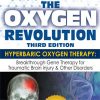Multiple Organ Dysfunction in Older Major Trauma Critical Care Patients
journals.lww.comFrailty rather than chronological age appears to drive multiple organ dysfunction syndrome (MODS) development, recovery, and outcome in older cohorts. Early identification of frailty after trauma may help to predict MODS and plan care in older trauma.
One thousand three hundred sixteen patients were enrolled over 18 months and one-third (434) were aged ≥65 years. Incidence of MODS was high for both age groups (<65 years: 64%, ≥65 years: 70%). There were few differences in severity, patterns, and duration of MODS between cohorts, except for older traumatic brain injury (TBI) patients who experienced a prolonged course of MODS recovery. Frailty rather than chronological age had a strong association with MODS development and MODS mortality. Critical care resource utilization was not increased in older patients, but MODS had a substantial impact on mortality. The majority of older patients who did not develop MODS survived and had favorable discharge outcomes (home discharge ≥65 years NoMODS: 50% vs MODS: 15%; P < 0.01).

















